Please submit press inquiries here:
Media Inquiry FormFor all other questions, please contact media@evergreentreatment.org
For all other questions, please contact media@evergreentreatment.org
Recent national and local media coverage of Evergreen Treatment Services and our REACH and Clinic Services teams. Stay informed about efforts to address the drug epidemic, housing crisis, and issues around community justice.

Despite an encouraging national dip in the past year, overdose deaths are still on the rise in many Western states as the epicenter of the nation’s continuing crisis shifts toward the Pacific Coast, where deadly fentanyl and also methamphetamine are finding more victims. Read more.

The Department of Commerce plan outlines securing new funding to improve response coordination and provide new housing units and emergency beds. Read more.

Less than three months after the U.S. Supreme Court cleared the way for cities to remove homeless people without having to offer them shelter in return, the city of Auburn moved quickly to cement the change on its books. Read more.

The Seattle City Council looks poised to establish six “stay out” zones for drug crimes and one for prostitution, authorizing judges to bar people from the zones once they’ve been charged with or convicted of certain offenses and authorizing police to make arrests if they don’t comply. Read more.

A vast majority of adults who were admitted to substance use treatment started using before their 18th birthdays. Read more.

King County’s steep curve of fatal fentanyl overdoses, propelled by record-breaking death counts last year, has at last started to bend. Read more.

International Overdose Awareness Day (IOAD) is the world’s largest annual campaign to raise awareness of overdoses, reduce stigma, and acknowledge grief felt by friends and families of those lost or left behind. Read more.

Seattle Mayor Bruce Harrell and King County Executive Dow Constantine want to change who calls the shots for the King County Regional Homelessness Authority. Read more.

A year ago, Seattle Center expanded to provide maintenance and public safety at the 20-acre Waterfront Park. It’s a partnership with Friends of Waterfront Park, a group led by civic and business leaders that’s been working for years as the city’s not-for-profit partner on the $806 million park project. Read more.
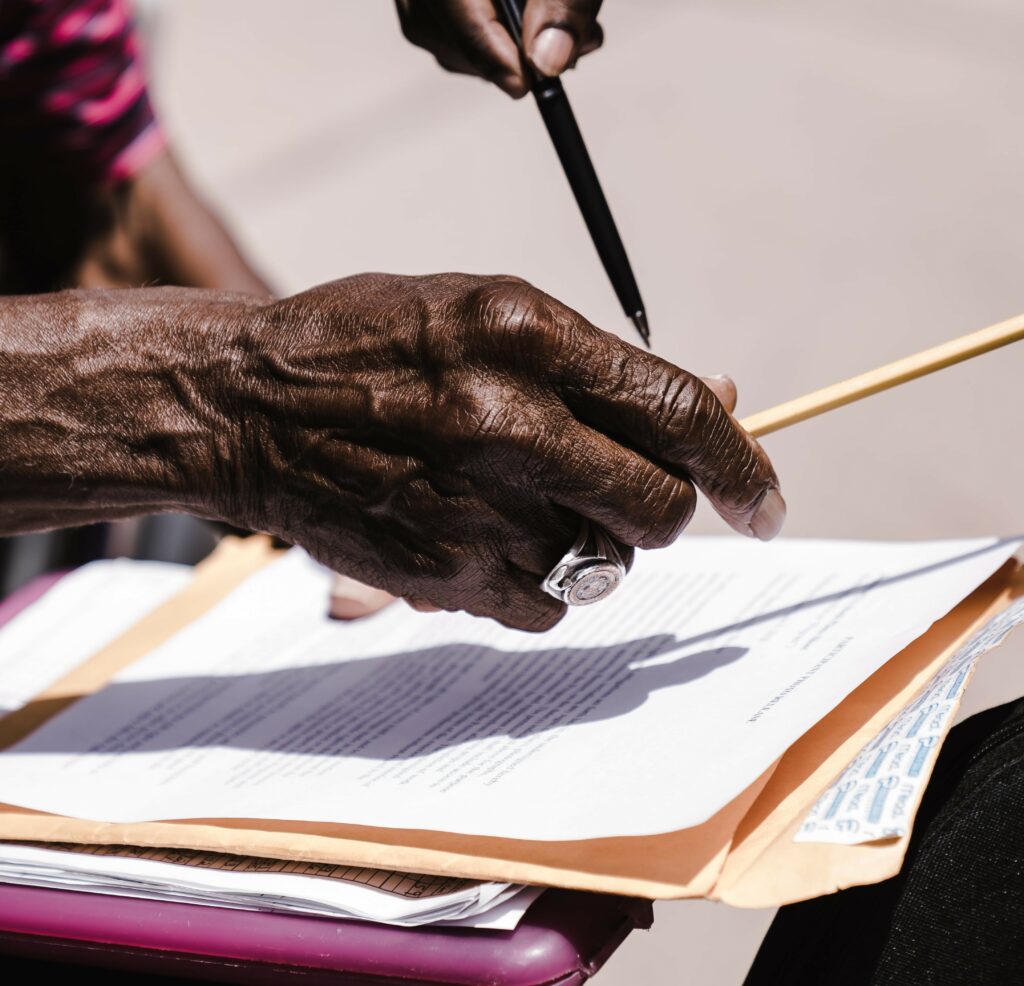
Methadone has been used for decades to treat opioid addiction. It is also difficult to come by, a problem health providers hope to ease with a new fleet of vans that can provide the drug. Read more.

When someone has a heart attack or stops breathing, a bystander often rushes over and performs CPR, keeping the person alive until trained medics arrive. King County offers training that aims to make helping someone in a mental health crisis just as second-nature. Read more.

The U.S. Supreme Court ruled Friday that cities can ban camping and sleeping in public, even if there is no shelter to send them to, overturning a previous ruling that has guided cities’ approaches to homelessness for years. Read more.
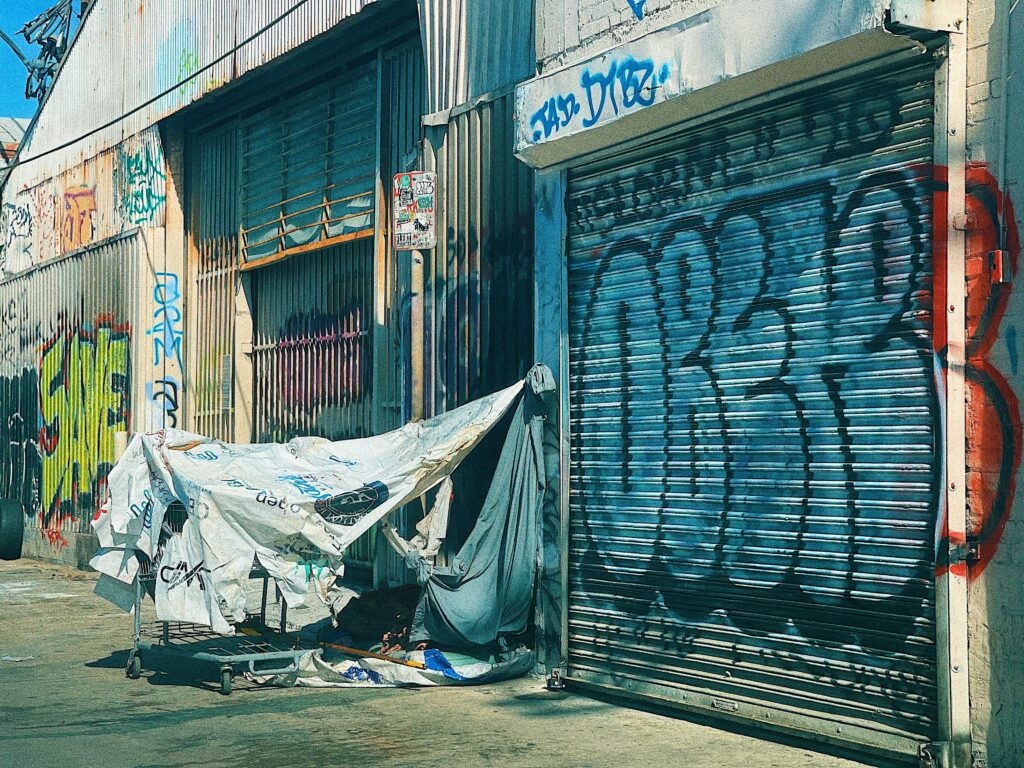
The Court ruled that laws limiting public sleeping are not cruel and unusual, regardless of shelter, which advocates fear will lead to “dystopian” bans. Read more.

Seattle City Attorney Ann Davison cheered Friday’s U.S. Supreme Court decision that chipped away at a limited set of protections for homeless people living outside on the West Coast. Read more.

With the arrival of semi-warmer weather and the official start of summer, homeless service organizations are asking for donations of some seasonal supplies — think sunscreen, salt tablets and umbrellas — along with the more standard clothing and household wares to support their clients. Read more.

Experts predict that if the U.S. Supreme Court overturns protections for homeless people on the West Coast, many cities will follow with harsher penalties for people living outside in tents, under tarps and in vehicles. Read more.

Programs are sprouting across the country to provide nursing home and rehabilitation services to homeless people who would otherwise shuttle between hospitals and the street. Read more.

Over the last decade, Washington state has built from nearly nothing a uniquely robust youth homeless response system that is showing staggering results. Read more.

At Skagit Valley College, peers lead support services for those dealing with substance-use disorders, becoming an example to schools statewide. Read more.

More than 16,000 people were reported to be experiencing homelessness on a given day in King County in the 2024 Point-in-Time Count. Read more.

Seattle will open a new space for people to recover and receive treatment for nearly 24 hours after they have overdosed on fentanyl or other drugs, Mayor Bruce Harrell announced Thursday. Read more.

Where can people go to recover after surviving a drug-related overdose? For people in Seattle, the answer is usually limited to the emergency room or staying put, often on the street. But a new option is on the way. Read more.

To help combat the growing homelessness crisis in the U-District, the U District Partnership (UDP) partnered with Evergreen Treatment Services’ REACH Program to launch a homeless outreach program in 2019. Read more.

Fentanyl-related fatal overdoses continue to devastate King County’s homeless population. Read more.

Washington state is heading into a new stage as it tries to develop better systems for responding to mental health crises: It’s placing counselors for its 988 mental health crisis hotline alongside staff who answer 911 calls. Read more.

Political leaders from coast to coast are embracing a return to “tough-on-crime” policies, often undoing the changes of recent years. Read more.

Ballard is a bit of an anomaly. Despite being one of the wealthier residential neighborhoods in Seattle, a lot of people are living outside there. Read more.

Mayor Bruce Harrell joined Seattle Fire Department (SFD) Chief Harold Scoggins, SFD Medical Director Dr. Michael Sayre and other leaders today to announce the launch of a new pilot program in Seattle that allows SFD’s paramedics to administer a new medicine in the field. Read more.

Shelter resources are scarce for unhoused young adults completing inpatient care. Read more.

A new five-pronged host of efforts to stop the surge of fentanyl overdoses and expand substance use treatment in King County — including opening a residential treatment center — will soon be put into action, county leaders announced Monday morning. Read more.

Seattle has told the King County Regional Homelessness Authority it’s taking back part of its funding. Read more.

As drug deaths surged above 112,000 a year in the U.S., driven by the spread of the synthetic opioid fentanyl, addiction experts have pointed to a troubling paradox. Read more.

People incarcerated by Washington have to work for as little as $1 per hour while paying unfair costs to stay healthy and connected with the outside world, says a new report by Columbia Legal Services based partly on survey responses and interviews with dozens of people in the state’s prisons. Read more.

In less than a year, the city of Burien went from fretting about how to get people indoors to enacting a strict camping law that makes it nearly impossible to live unsheltered there. Read more.

The day after Christmas, a large white truck bearing the initials ETS pulled up next to the Community Lifeline homeless shelter in downtown Shelton. Read more.
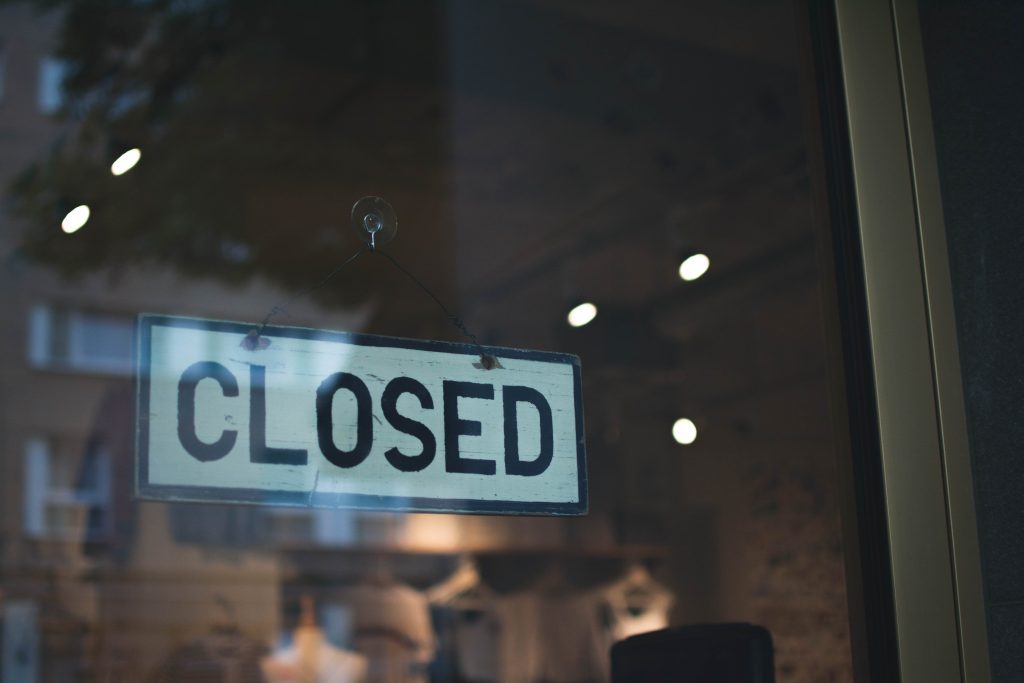
A frozen pipe explosion destroyed a Seattle treatment facility, delaying access to medication for more than 1,000 people. Read more.
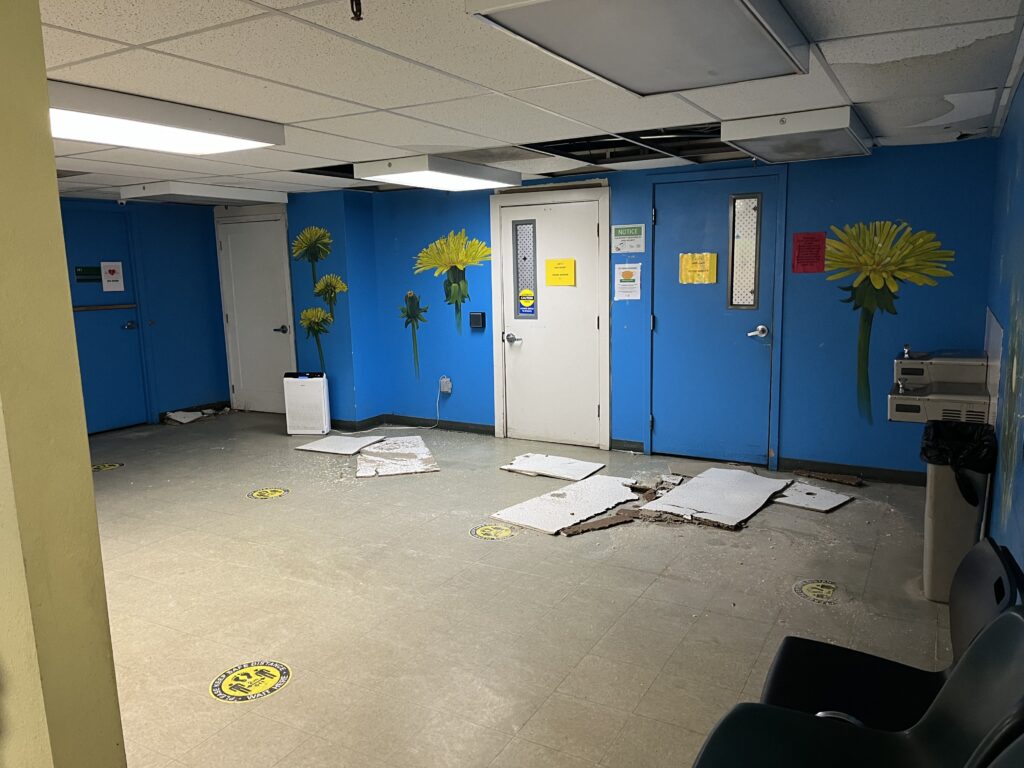
A burst pipe and flooding has shuttered a Seattle clinic that provides opioid use disorder treatment to over 1,000 people. Read more.

On what could be one of the coldest weekends of the year, the majority of people living outside on Seattle’s streets and across King County didn’t have an indoor space to sleep. Read more.

Experience suggests that many more people would make use of treatments if only they were easier to access: In other countries and in many U.S. states, when the barriers to addiction treatment have been lowered, treatment uptake has increased, and overdose rates have fallen. Read more.

Homelessness is on the rise in the United States, and it’s growing at a rate never seen before, according to data released Friday by the U.S. Department of Housing and Urban Development. Read more.

If the goal is to have fewer people dying from overdose, the data is clear: Safe consumption sites are an effective way to do that, and they are spreading globally. Read more.

After months of debate, Burien has chosen a site for a potential new homeless shelter. Read more.

H-SYNC — Housing Stability for Youth in Courts — has piloted using evidence-based surveys to identify teenagers in need of support services. Read more.
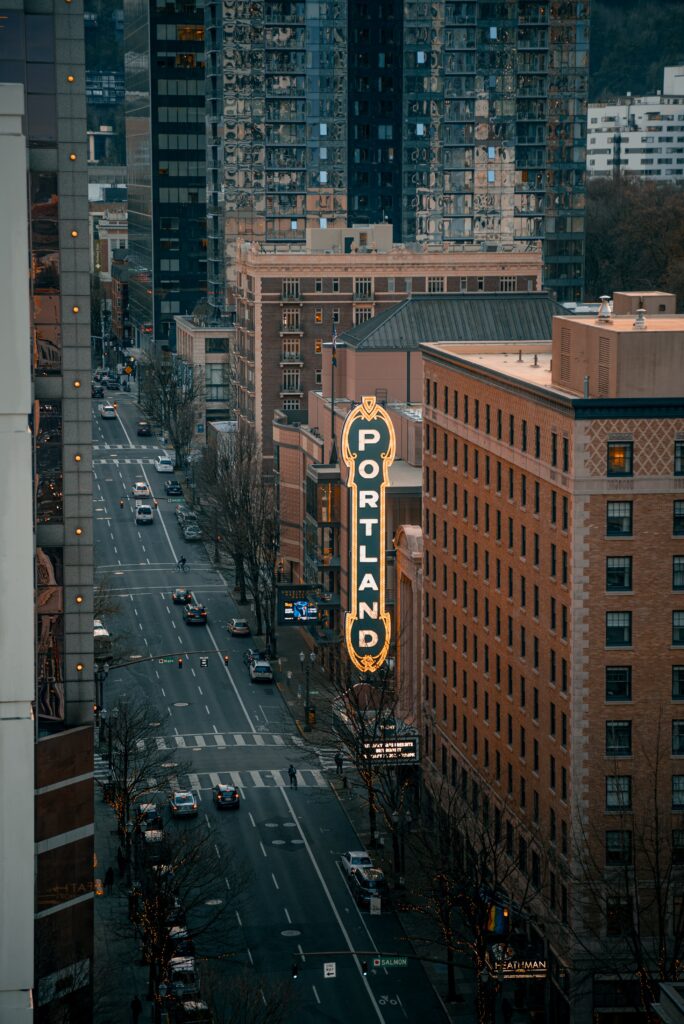
Oregon’s first-in-the-nation law that decriminalized the possession of small amounts of heroin, cocaine and other illicit drugs in favor of an emphasis on addiction treatment is facing strong headwinds in the progressive state after an explosion of public drug use fueled by the proliferation of fentanyl and a surge in deaths from opioids, including those of children. Read more.

King County has given Burien a deadline of Nov. 27 to take its offer of $1 million and 35 shed-like shelters to address the city’s small but growing unsheltered homeless population. If the city doesn’t accept by that date, the county says those resources could go elsewhere. Read more.

Philadelphia is again the focus of a national campaign to open—or restrict—sites where people use drugs under medical supervision. Read more.

In a live, public event held at Seattle Public Library’s downtown location, The Seattle Times gathered local experts to share more about the fentanyl epidemic, including treatment options and how policymakers should respond. Read more.

Now that the dust has settled, what does the city’s new drug ordinance mean for people who use drugs in public and others who witness or are otherwise impacted by that use? Read more.

Evergreen Treatment Services is planning to get a second mobile unit in Seattle as a part of its Treatment in Motion program. Read more.

Seattle Mayor Bruce Harrell made the city’s new drug law official Wednesday, when he signed the recently passed bill. The law will take effect on Oct. 20. Read more.

The Seattle City Council voted 6-3 Tuesday to align the city’s municipal code with a 2023 state law making public drug use and possession a gross misdemeanor and give the City Attorney’s Office authority to prosecute those crimes. Read more.

At least half a dozen student-led groups across the state provide space to socialize and make friends in ways that don’t revolve around partying and give voice to the importance of having fentanyl test strips and naloxone readily available on campus. Read more.

Narcan, the first opioid overdose reversal medication approved for over-the-counter purchase, is being shipped to drugstore and grocery chains nationwide. Big-box outlets like Walgreens, CVS, Walmart and Rite Aid said they expected Narcan to be available online and on many store shelves early next week. Read more.
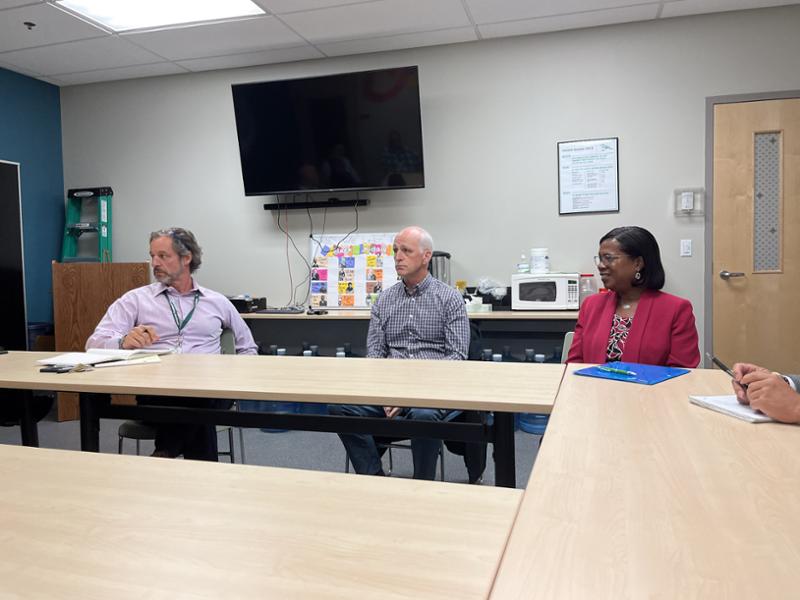
Rep. Adam Smith and Dr. Delphin-Rittmon of SAMSHA sat down at Evergreen Treatment Services for a discussion about the nationwide substance use crisis and the steps we can take at the local, state, and federal level to address this crisis. Read more.

As street drugs have become ever more powerful and deadly, a small nonprofit in Manhattan dedicated to preventing overdoses has drawn politicians and health officials from around the country searching for possible solutions to the opioid epidemic. Read more.
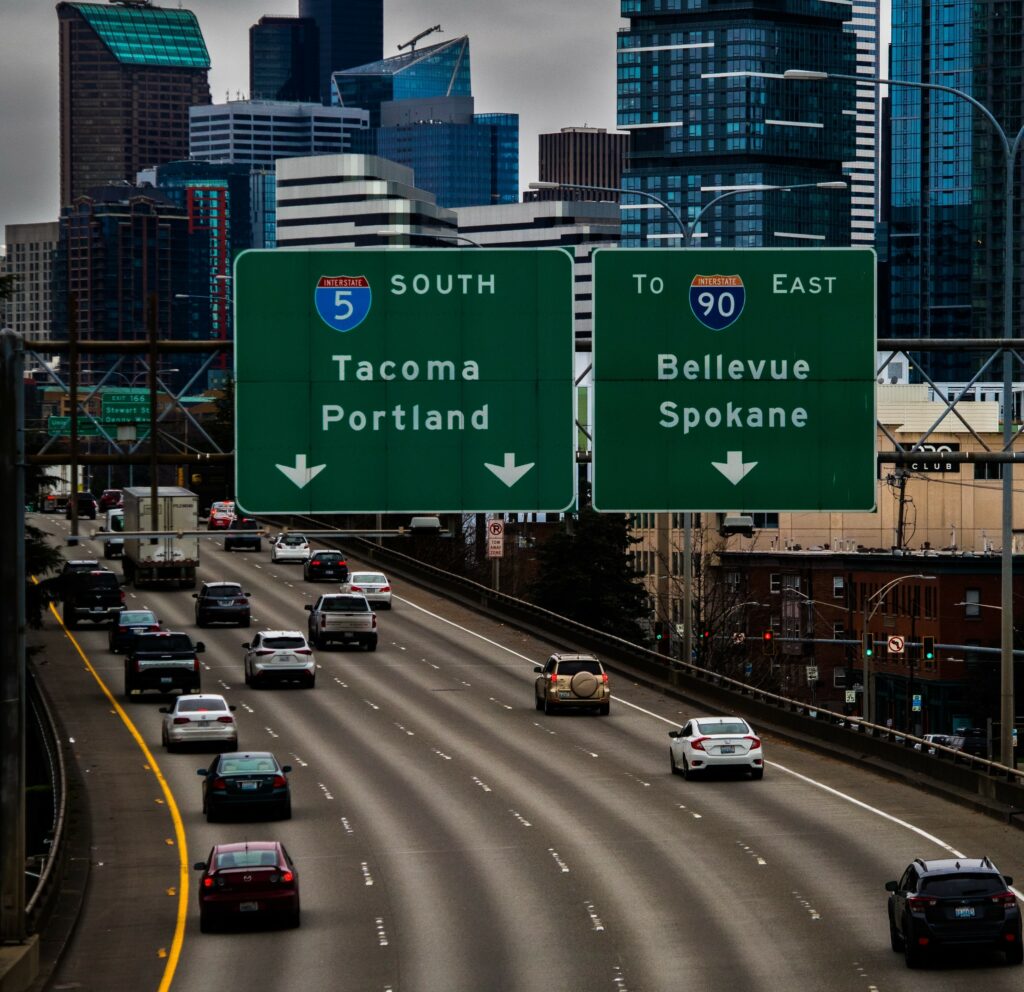
A program that brings treatment services for people with opioid use disorders will be expanded into Pioneer Square following a key vote by the Seattle City Council on Tuesday. Read more.

Pre-pandemic, accessing emergency shelter in the Seattle area often meant being packed into a room with strangers on all sides. The pandemic spurred radical changes in the homeless shelter system, leading to more space, more privacy, and more autonomy for people. Read more.

The drug treatment landscape in the Seattle area is vast, ranging from low-barrier harm-reduction work to lengthy residential inpatient treatment centers. The core of substance-use disorder treatment falls into three categories: medication-assisted treatment, outpatient treatment and inpatient treatment. Read more.

Cantwell’s roundtable participants included Seattle Mayor Bruce Harrell, the city’s police and fire chiefs, Evergreen Treatment Services CEO Steve Woolworth, University of Washington researcher Caleb Banta-Green, and a mother who lost her 20-year-old son after he bought what he thought was a painkiller that turned out to contain fentanyl. Read more.

Readers responded to a June 4 article “Outreach, Outside,” about downtown street-outreach worker Mikel Kowalcyk and the clientele she helps. Read more.

The Multnomah County Health Department was slated to provide smoking supplies to fentanyl and meth users starting this month in an effort to dissuade them from using needles to inject the drugs, which can lead to more potent, fatal doses and the spread of diseases. Read more.

A majority of Seattleites say they approve of the city’s increased clearing of homeless encampments in the past few years, based on a June poll. But they are less enthusiastic on how successful this approach is. Read more.

To many public health experts, the tough new fentanyl laws seem like a replay of the war-on-drugs sentencing era of the 1980s and 90s that responded to crack and powder cocaine. They worry the result will be similar: The incarcerated will be mostly low-level dealers, particularly people of color, who may be selling to support their own use. Read more.

DCHS, Public Health, and many community providers are working to increase access to life-saving medications such as methadone, buprenorphine, and naltrexone. These medications can reduce the risk of overdose and reduce the recurrence of opioid use by stabilizing withdrawal symptoms and cravings. Read more.

In a 5-4 vote Tuesday, the Seattle City Council rejected a bill that would have given the city attorney the authority to prosecute drug possession and public drug use cases, following nearly three hours of public comment. Read more.

Longtime REACH worker Mikel Kowalcyk is intimately familiar with downtown blocks, and describes them as a kind of bog. “People get stuck there,” she says. “Because that’s where the drugs are. It’s a community of people using together. And as a city, we’ve never had the resources we need to assist them.” Read more.

Data presented to the Seattle City Council Tuesday morning suggests most people using drugs want to reduce or stop their substance use. Read more.

Due to extreme heat, with temperatures in the 80’s and potentially higher, KCRHA is activating Severe Weather Response protocols in Seattle from Saturday, May 13 through Monday, May 15. Read more.
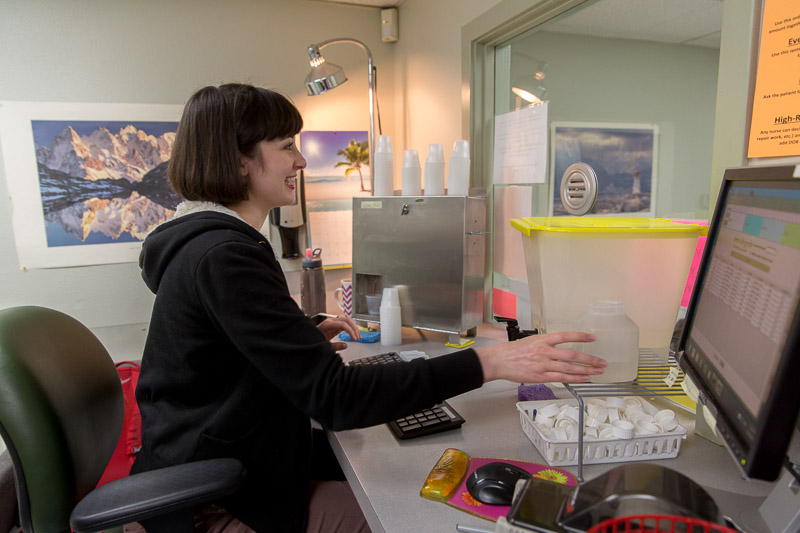
Representative Adam Smith (D-Wash.) introduced the Behavioral Health Crisis Care Centers Act, which would provide grant funding for states, cities and counties, and tribal governments to build and expand crisis stabilization services with housing assistance and other wrap around services. Read more.

The Washington House voted down a last-minute deal to maintain a criminal penalty for drug possession and boost funding for treatment on the final day of the legislative session, leaving the state’s drug laws in question. Read more.

In the last days of Washington’s legislative session, advocates and lawmakers want to greatly increase two state funds to address student and family homelessness. Read more.

Decades of mass incarceration have resulted in a prison population growing older and more enfeebled, and has introduced the challenge of reintegrating people coming out after long sentences, often with few skills, into a society that technology has made alienatingly unfamiliar. Read more.

This month, the U.S. Food and Drug Administration approved selling Narcan without a prescription, a victory for longtime advocates calling on the agency to make the lifesaving drug more accessible. Read more.

A group of businesses, clergy, law enforcement, housing outreach workers, and some Burien city leaders are calling on King County for help. Read more.

Health officials say fentanyl test strips could help prevent accidental overdoses, but under current law, they’ve been illegal because they fall under the definition of drug paraphernalia. Read more.

For years, Seattle officials have alleged that King County’s suburbs are pushing “their” homeless people into Seattle. Read more.

The Third Avenue Project seeks to accomplish what many before have failed to do: end the open-air drug and stolen-goods market that has pervaded the heart of Downtown for decades. Read more.

Faced with a long-term future of hybrid work, Seattle’s downtown boosters are rethinking what the neighborhood needs to be to remain a place where lots of people want to spend time. Read more.
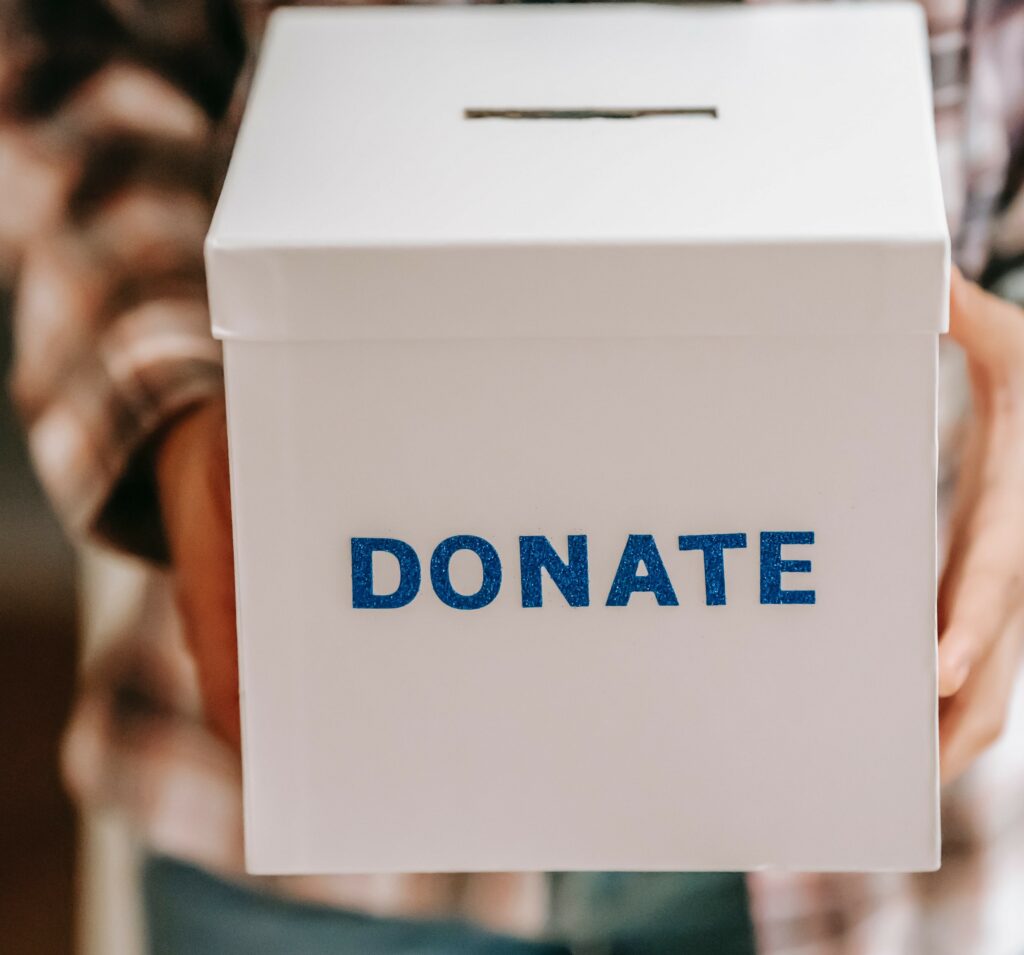
The Puyallup Tribe late last month awarded a combined $293,785 to 32 local organizations via its Charity Trust Board. Read more.

Six months after King County received housing vouchers in May 2021, only 10 had been used to move people into housing — one of the worst rates in the country in a region with one of the largest populations of people in need of housing. Read more.

Starting this year, the Washington State Department of Licensing will offer a one-time original or renewed state ID card at no cost for those who are homeless and expected to continue living in Washington. Read more.

The King County Regional Homelessness Authority estimates it would take more than $8 billion in capital costs, up to $3.5 billion in annual operating costs and tens of thousands more units of housing. Read more.

A record 310 homeless people died in the Seattle area last year, highlighting the region’s struggle to house the thousands of people living on its streets. Read more.

A new proposal by State Rep. Tarra Simmons (D-Bremerton) would raise that minimum wage to match Washington’s at $15.74 an hour.
Simmons also happens to be the first ever formerly incarcerated person to be elected to the State Legislature. Read more.

Despite promises to decrease homelessness and crime with compassion and “immediately create more efficient and effective solutions” with Partnership Zero, Mayor Bruce Harrell’s response has been anything but compassionate or effective. Read more.

As of the end of October, the Seattle Police Department’s crime dashboard shows reports of crime downtown have fallen to nearly half of what they were at the start of 2022. Read more.
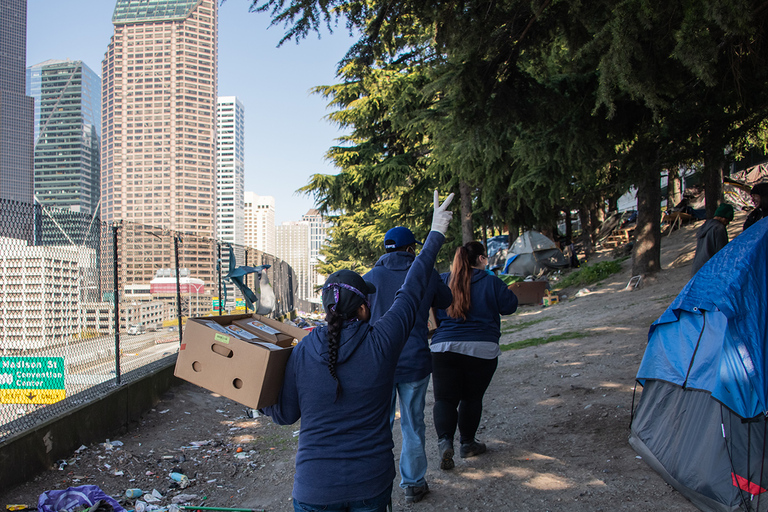
What you need to know about Seattle’s 2023-24 biennial budget. The City of Seattle passed the 2023-24 biennial budget, addressing affordable housing and other critical needs. Read more.

“The decision to build the tunnel provided the city with an opportunity to reclaim and connect downtown to our waterfront. The goal of this program is to create a waterfront for all, for people of all walks of life to enjoy,” said Angela Brady, waterfront program director of the City of Seattle. Read more.
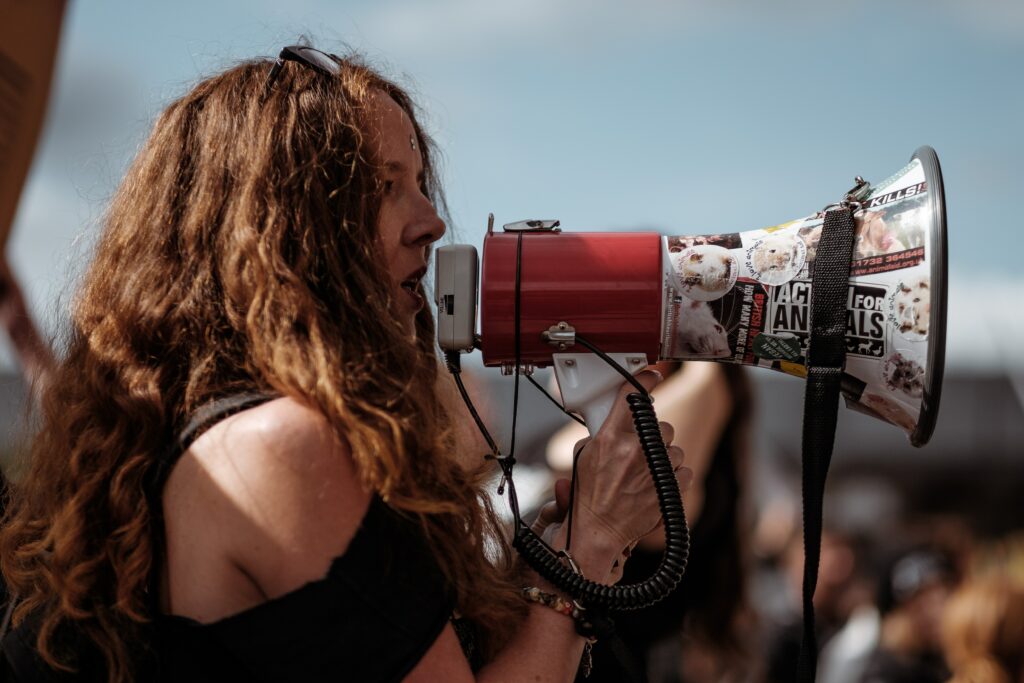
Dozens of human services workers rallied at Seattle City Hall plaza on Tuesday morning, calling for the city and King County to adjust their wages to keep up with inflation and to preserve homelessness services that could go away as one-time federal funding expires. Read more.

Weekday crowds are still thin in Seattle’s central business district, a renaissance is on the horizon with the central waterfront. Read more.

Tricia Howe, who directs an outreach program for drug users at REACH, Evergreen Treatment Services’ homeless outreach program, had firsthand experience of King County’s overdose crisis earlier this summer. In a matter of weeks, there were two overdoses outside REACH’s Belltown office. Read more.

On Oct. 13, Mayor Bruce Harrell announced a proposed budget that contained sweeping changes to his Unified Care Team (UCT), a group overseen by Deputy Mayor Tiffany Washington and tasked with the removal of unauthorized encampments on city property, colloquially known as “sweeps.” Read more.

The King County Regional Homelessness Authority opened a smoke shelter Tuesday to relieve people living outside from the unhealthy air that’s blanketed the region, but few people so far have taken the respite. Read more.

If there’s one thing the powerful entities fighting over the future of Camp Hope seem to agree on, it’s that the camp can’t last forever. The debate is about “when” — not “if” — the East Central homeless encampment will come down. Read more.

People with substance use disorders have a significantly heightened risk of suicide. Compared with the general population, risk of suicide is about 14 times higher among people addicted to heroin and prescribed opioids and about five to 10 times higher among those dependent on alcohol or meth. The statistics are staggering, experts agree. And yet they likely underestimate the overlap between addiction and suicide. Read more.

The Centers for Disease Control and Prevention recently authorized updated COVID-19 boosters meant to protect recipients from common COVID-19 Omicron strains. The state Department of Health is planning a fall rollout for the updated booster. Read more.
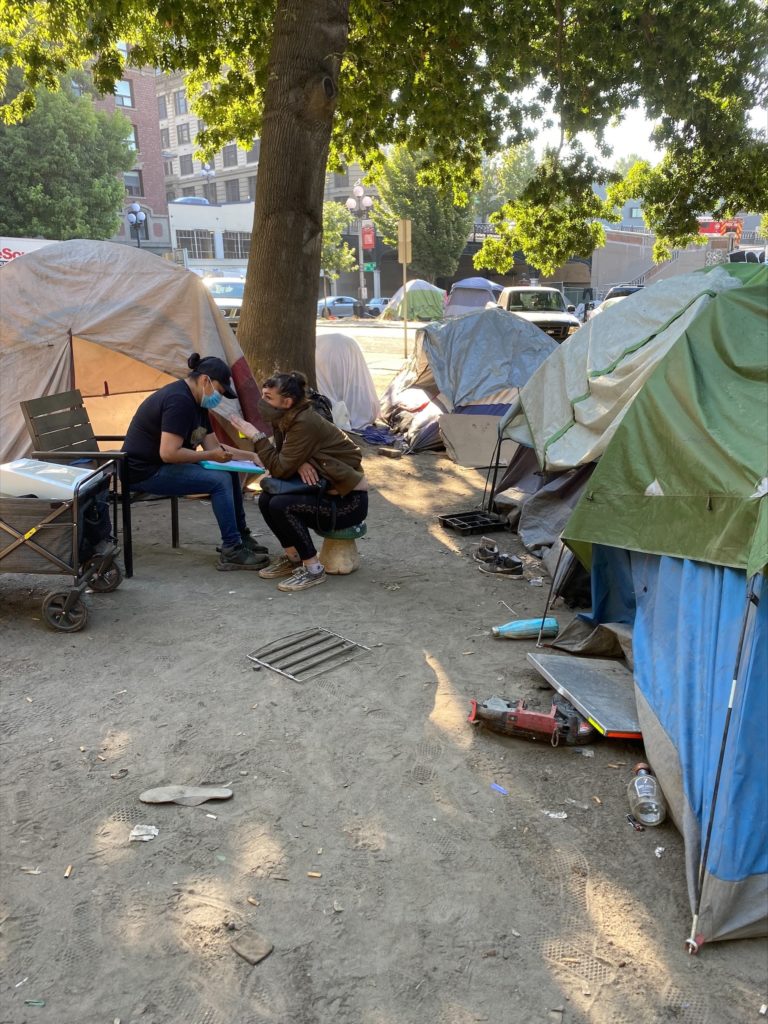
A six-week effort to remove a homeless camp may become a model for other efforts to help people off the streets in King County.
Until a few days ago, the encampment at S Dearborn St and I-5 had been a source of crime and neighborhood concerns. However, a collaborative, multi-agency approach managed to bring just about everyone inside. Read more.

The needs of homeowners and businesses and those of people who are unsheltered often conflict. Community leaders, faced with increasing crime and disorder, frequently see police sweeps as the only answer, while advocates for homeless people argue that this response is merely a stopgap that does more damage than good. Read more.

America’s homelessness problem has the makings of an acute crisis. Shelters across the U.S. are reporting a surge in people looking for help, with wait lists doubling or tripling in recent months. The number of homeless people outside of shelters is also probably rising, experts say. Some of them live in encampments, which have popped up in parks and other public spaces in major cities from Washington, D.C., to Seattle since the pandemic began. Read more.

Much of the low-income and public housing in Seattle is older, made of concrete or brick, and lacks air conditioning. After four days of temperatures reaching 90-plus degrees, some people who live in the affordable housing building, Pacific Apartments in Pioneer Square, and the outdoors are feeling the impact. They have fewer means to escape the effects of extreme heat and are more likely to have weakened immune systems. Read more.

Seattle is expected to see unusually high temperatures, rising above 90 degrees on Tuesday and Wednesday. In anticipation of the heat wave, King County’s Regional Homelessness Authority is opening indoor daytime cooling spaces in addition to the daytime and overnight shelters that are usually open. Read more.
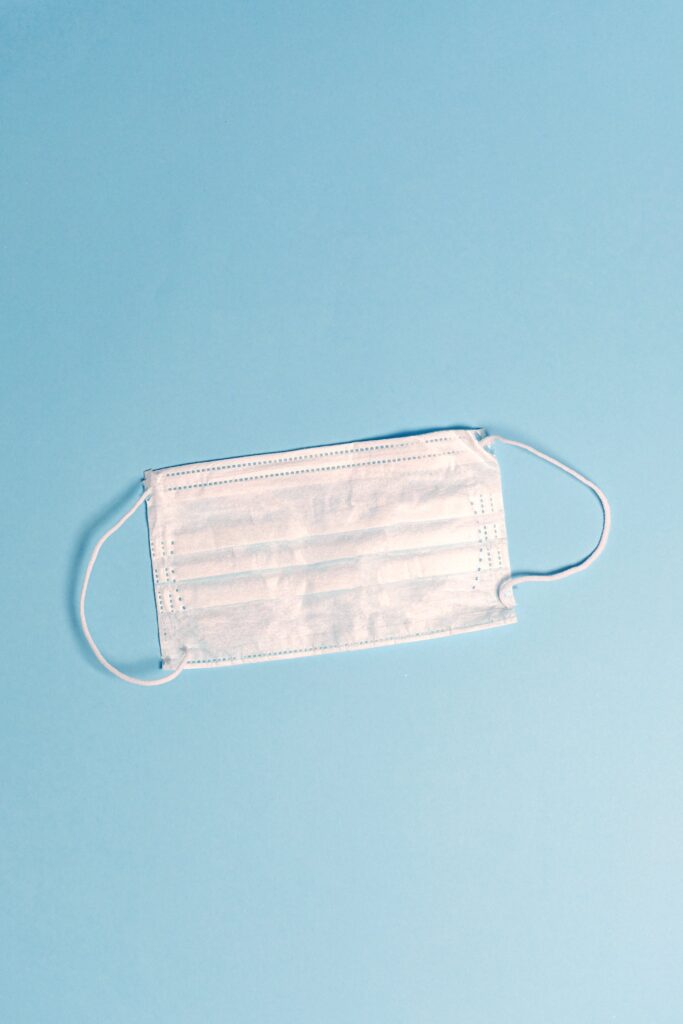
Overdose death rates in the U.S. increased dramatically in 2020 as the Covid-19 pandemic arrived, especially among Black, American Indian and Alaska Native individuals, according to a new report from the Centers for Disease Control and Prevention, as deadly synthetic opioids flooded the nation and access to treatment remained elusive for millions of Americans. Read more.

On July 13, the King County Road Services Division will begin clearing garbage and debris that has accumulated on a section of Green River Road between Kent and Auburn in unincorporated King County. This comes after a recent three-day effort by King County, the King County Regional Homelessness Authority, and non-profits, including the Salvation Army, REACH, and Seattle’s Union Gospel Mission, ending on Saturday, to reduce the number of individuals experiencing homelessness living at the encampment and connect them with shelter and services. Read more.


This is a tension that’s playing out across West Coast cities, as the combination of a mental health crisis and a decade long real estate boom have created a new, especially vulnerable, especially visible generation of the unhoused. They’re “unsheltered,” meaning they live in cars, tents and makeshift shelters on the streets, rather than in shelters. Over the decade between 2009 and 2019, unsheltered homelessness continued to grow in California, Oregon and Washington, even as it declined in major cities outside the West Coast. And as the unsheltered increasingly live on streets in residential neighborhoods, their new neighbors have turned to one place for help in particular: the police. Read more.

The particulars have changed, as has its center of gravity: First Avenue to Second to Third. Its name also shifts, depending on who’s talking about which decade. Old-timers recalling the 1960s say “Skid Row.” Needle-exchange workers from the ’80s talk about “Penney’s Corner” (after a nearby JCPenney). To Deputy Seattle City Attorney Scott Lindsay, it’s “3P” (for Third and Pike/Pine). In 1990, an article about crack cocaine by Seattle Weekly writer Eric Scigliano reported that dealers were calling it “The Blade.” That name stuck.
Whatever you call it, the overall milieu has tremendous sticking power — despite gentrification and repeated police interventions. Read more.
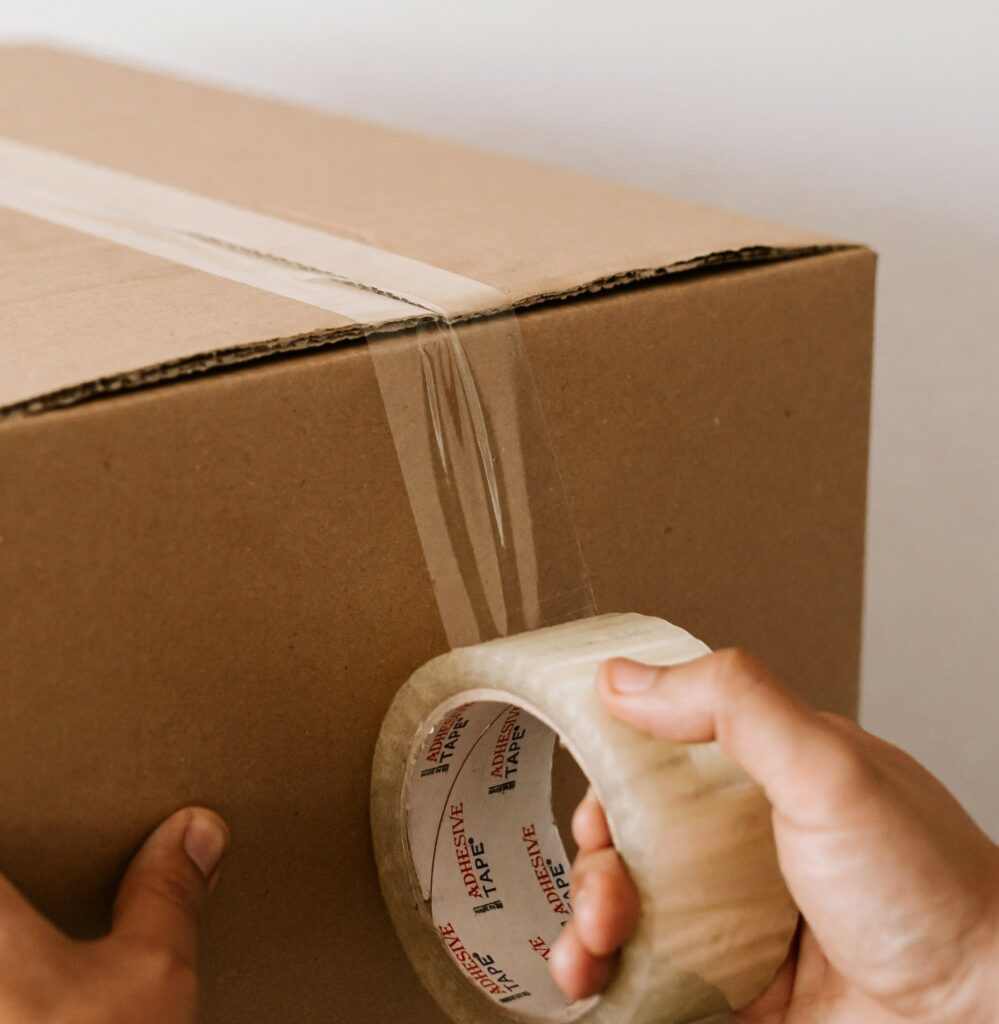
Local legal aid attorneys say bureaucratic roadblocks and unnecessary delays cost the county badly needed resources — and in some cases cost Yakima tenants their homes. Read more.

With a $2.5 million National Institutes of Health grant, researchers at the University of Washington will explore one of the most important questions related to this emergency policy change: whether those changes helped with another opioid-related crisis: the unequal access experienced by Black and Latinx patients to buprenorphine. Read more.

On a recent Friday, Soledad Brown, a volunteer at the Rainier Valley Food Bank, was grateful for a day without rain. A line of 30 or 40 people wound around the building and into the parking lot as customers waited for bags of groceries. “Yesterday I got drenched,” Brown said. “I always try to brighten everyone’s day.”
A former client of the South Seattle food bank, Brown has been an energetic presence here for three years. She takes two buses and the light rail from Des Moines every weekday to help distribute food and make patrons feel welcome. Brown said she has noticed that demand for food hasn’t declined this year. Even as businesses reopen, and the state’s unemployment level is back down near 4%, the need for food assistance remains high. Read more.